From the World of Finance to Creating a Coding School–One Man’s Journey
Apr 01, 2019
5 mins
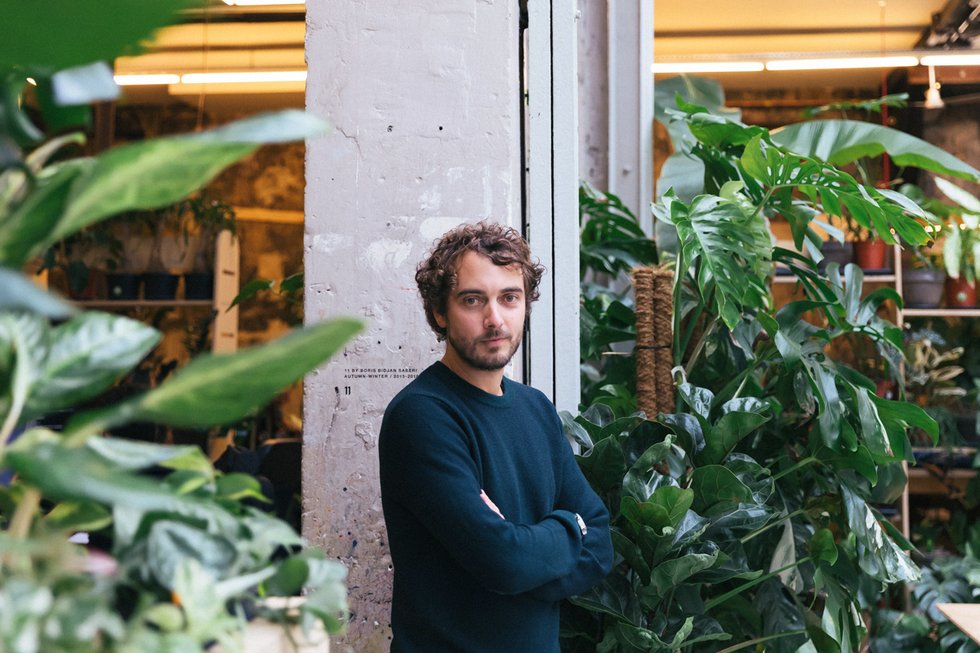

Photographe chez Welcome to the Jungle
After three years in finance as a quantitative analyst, Boris Paillard, 32, decided to drop everything and set up Le Wagon, a coding school. Five years after it held its first training session, this young entrepreneur takes a look back at what prompted him to change his life and the challenges he faced along the way.
What was your background and what made you go into finance?
I followed a fairly classic path—I did my preparatory training in math/higher math at Lycée Henri-IV high school in Paris, before enrolling at the École Centrale of engineers. I was always good at math and science, but I had no clear idea of what job I wanted to do. I just knew I didn’t want to do research and, when my course ended, market finance was in its heyday. So I chose to specialize in mathematics and applied for jobs in the finance sector, even though I wasn’t very motivated. After a year with HSBC in Hong Kong, I rejoined the team in Paris as a quantitative analyst.
What kind of things did you do in your work?
My job was to create mathematical models for traders to assess their portfolios more effectively. It was a very technical job—quantitative analysts are a bit like the engineers of the market hall. I worked with very competent people, almost all of them graduates from prestigious universities. Our discussions motivated me to stay on this path for a few years, but I soon realized that I wasn’t comfortable in my skin. I felt that my job didn’t have a great deal of meaning.
What didn’t you like?
Working in a large company left me feeling like I was just another pawn. I couldn’t really see the benefit of what I was producing. I never really knew if traders were using the models I designed. I sometimes felt that I was there merely to justify our work to the supervisory authority of the financial markets. I was also uncomfortable with the internal policies—the people I saw progressing in the company were not necessarily those who I had the highest respect for professionally, and that frustrated me. I was beginning to feel stifled working in this highly technical and uber-specialized area. And I couldn’t see how I could use what I was achieving and learning at work in other areas of my life. All of this meant that I soon got the urge to get into something else…
“Working in a large company left me feeling like I was just another pawn. I couldn’t really see the benefit of what I was producing. I never really knew if traders were using the models I designed”—Boris Paillard

Boris Paillard, CEO of Le Wagon, Paris
What was the trigger for leaving finance?
I was fortunate to have many long-standing friendships with people who had dedicated themselves to the field of tech, with whom I could develop more personal projects alongside my finance work, such as web and mobile applications. I worked on a flight-comparison project and then a centralized calendar—two projects that never saw the light of day, but which enhanced my knowledge of coding. Investing in tangible projects that could be used directly by the general public really motivated me. I gradually realized that I would have a much greater sense of fulfilment working in this area. So I decided to leave my job.
How did you come up with the idea of Le Wagon?
I always enjoyed teaching and passing on knowledge. During my preparatory training, I taught math on the side to earn a little money. And in the finance world, I was often called on to give talks and explain technical issues to operational teams in a way that could be easily understood. By working on my app projects, I realized that the programming courses I took at engineering school were very tedious—too theoretical and not very practical. I thought a lot about how I learnt to code, and how I could improve training in this area. I looked at what was happening in the US, which is much more advanced than France in this area, and found out that there were intensive two-month training programs called “bootcamps” for people who are changing career but don’t necessarily have the time or means to sign up for one or two years of conventional studies. I was curious about this concept and talked about it with my entrepreneur friends and my brother, who is a criminal defense lawyer. Together, we decided to set up our own coding school.
“I realized that the programming courses I took at engineering school were very tedious—too theoretical and not very practical. I thought a lot about how I could improve training in this area”—Boris Paillard

Le Wagon, Paris
How did this entrepreneurial adventure go at first?
We worked on the project for eight months before launching our first training session in January 2014. I developed the course content myself—we had to find teachers to support us and we offered some free evening classes to test out our concept and teaching methods. It was one of the most intense periods of my life. I was pretty stressed because I’d never personally received any training in web development, and I was worried students would see me as a kind of impostor. To reassure myself and up my game, I did a lot of networking and took part in various meetups with developers. I surrounded myself with people who have more of a technical background than I did, including Sébastien Saunier, a Polytechnique graduate and technical consultant for start-ups, who joined us as CTO.
“I was pretty stressed because I’d never personally received any training in web development, and I was worried students would see me as a kind of impostor”—Boris Paillard
What drives you in your daily work?
What I love is the feeling of having a real impact on the lives of the people who come to Le Wagon. We have an average of 2,000 students per year in the 30 cities where we operate. This isn’t huge on the world scale, but I know that, for many people, it has been a real turning point in their careers. This adventure gives me everything I didn’t have in finance. I find meaning in what I do on a daily basis. I often say that education and training are the Rolls-Royce of meaningful jobs! I never get bored—I constantly refresh my ideas and look out for new projects to launch. I don’t feel like I’m working, I see it more as a big game.
“This adventure gives me everything I didn’t have in finance. I find meaning in what I do on a daily basis. I often say that education and training are the Rolls-Royce of meaningful jobs!”—Boris Paillard
What advice would you give to those wanting to drop everything to embark on an entrepreneurial adventure?
People often ask me if, when I left the world of finance, I already had a clear idea of the school I wanted to create, if I had drawn up a business plan and had everything planned out. The answer is, no, I didn’t. But in everything I embarked on, I always thought about what this experience was giving me on a personal level. Just one start-up out of 1,000 succeeds—the odds are so slim that it’s got to be something worthwhile! I think it’s healthy to have a personal interest in entrepreneurship and to find meaning in your work in general. This helps to downplay the obstacles and failures along the way. For me, more than anything else, entrepreneurship is an opportunity to learn.

The (very green) work space of Le Wagon, Paris
Follow Welcome to the Jungle on Facebook and sign up for our newsletter to receive our articles every week
Photographs by Thomas Decamps
Translated by Matthew Docherty

More inspiration: Inspiring profiles
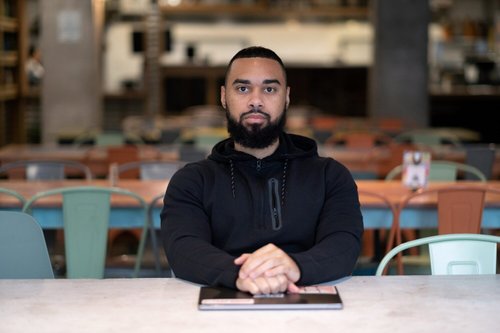
Be real, get ahead: The power of authenticity in your career
Pabel Martinez shares insights on how to allow yourself to be yourself, find your voice, and deconstruct stereotypes at work.
Apr 25, 2024

The professionalism paradox: Navigating bias and authenticity with Pabel Martinez
Pabel Martinez challenges the conventional norms of professionalism by unraveling the complexities of workplace discrimination.
Mar 11, 2024
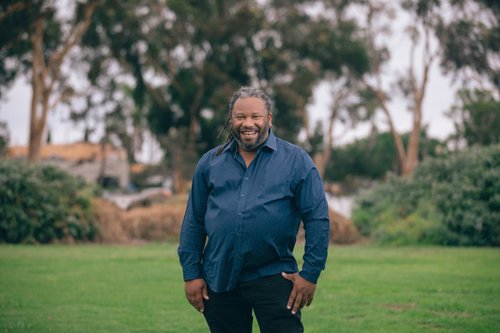
How play can make you happy, creative and productive at work
Work-life balance usually means separating work and play, but it might be a better marriage than you think...
Nov 07, 2023
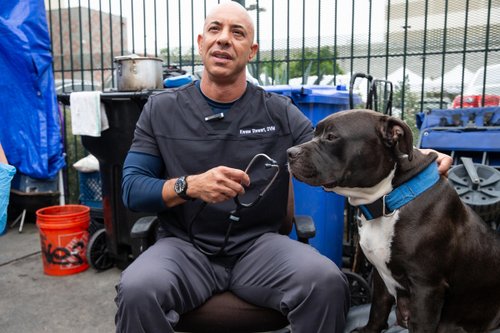
Project Street Vet: Caring for the unseen paws of Skid Row
Providing vet-to-pet care in some of California's largest homeless communities, Dr. Kwane Stewart shares the ups and downs of his remarkable work.
Aug 29, 2023
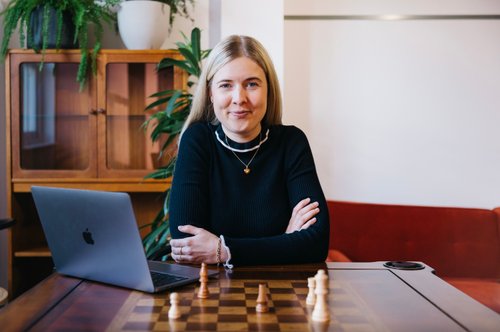
Girls learn how to have fun – and funds – by investing
A Danish trio is fighting gender inequality... on the stock market. We had a chat with one of the co-authors of the book Girls Just wanna Have Funds
Jan 30, 2023
The newsletter that does the job
Want to keep up with the latest articles? Twice a week you can receive stories, jobs, and tips in your inbox.

Looking for your next job?
Over 200,000 people have found a job with Welcome to the Jungle.
Explore jobs